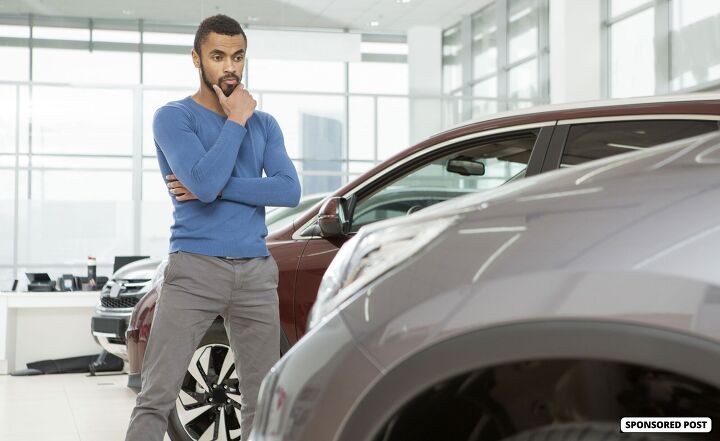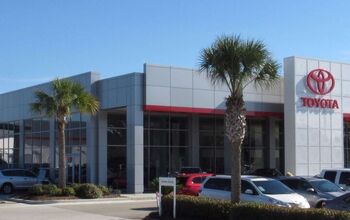How to Buy a Used Car

Maybe your current car is worn out beyond justifiable repair. Maybe it just doesn’t suit your needs anymore. Maybe you’re looking to buy a car for the first time in your life. Maybe your kids have graduated college and you’re looking for a special ride to celebrate. Whatever the occasion, buying a car can often be both stress-filled and exciting. Here are some tips on how to buy a used car from a dealer or a private seller without getting taken for a ride.
Do a VIN Lookup
One piece of advice you’ll often hear is that you should buy a trusted vehicle history report like Bumper.com for any used car you plan on buying. While many dealerships offer to include a vehicle history report, some don’t and most private sellers don’t offer them either. Bumper allows you to do a very thorough report through its VIN lookup service. Vehicle history reports are especially important when dealing with a private seller as they can inform you of any title washing on a vehicle. It’s no fun buying a car and then finding out afterwards that the title was declared salvage in another jurisdiction, as it could land you in a whole heap of trouble when you go to sell it. In addition, vehicle history reports can tell you how many owners a car has had, if the car has ever been stolen or involved in a reported collision and what jurisdictions a car has been registered in. Remember, just because the car is up for sale in a sunny, rust-free locale doesn’t mean that it’s spent its entire life there. Service history from good shops will also likely appear on vehicle history reports. Bumper.com reports could also let you know if there are any outstanding recalls that need to be addressed.
Financing vs. Cash
Photo By TZIDO SUN/Shutterstock
There’s not much point in knowing how to buy a used car from a dealer or private seller if you can’t afford it. If you’re seeking to finance your new-to-you vehicle, it’s worth both getting pre-approved for financing through your local bank or credit union and letting the dealer’s financing department shop around. With the era of cheap manufacturer-supplied auto credit coming to a close, your financial service provider may offer more competitive rates than the dealer is advertising. On the flipside, dealer financing departments often have access to all of the big lenders and are able to cross-shop them for you. They could land an even better rate than your personal financial service provider, so it’s worth weighing all your options. It’s also worth noting that cash isn’t the king it once was. Many dealerships receive a kickback on in-house financing programs, so they’re more likely to budge on price if they know you’re willing to finance.
Gap Insurance and Extended Warranties
In terms of dealer add-ons, some are simply there to squeeze extra money out of you, but some really do have benefits in certain situations. If you’re upside-down on your current vehicle, meaning you owe more than what the trade-in value is worth, gap insurance may be a prudent idea. If your new vehicle gets totalled within the period that gap insurance is active, all of your debt disappears. It’s certainly a better option than the worst-case scenario of being saddled with the debt without a vehicle to show for it.
No matter how much you know about how to buy a used car and how much research you do, sometimes cars need expensive repairs. This is why extended warranties may be prudent if the vehicle you’re buying is known to have a less-than-perfect reliability track record. Extended warranties offered by the vehicle’s manufacturer often have the most robust coverage, but don’t be so quick to discount aftermarket warranties. While some don’t provide adequate coverage, better plans with better companies cover the bulk of breakdowns and failures and are quick to pay out, often compensating approved shops directly so you only pay for the diagnostic fee and the deductible.
Get the Best Deal Possible
One of the best bits of knowledge you can arm yourself with when learning how to buy a used car from a private party or a dealer is how much a vehicle is actually worth. With a topsy-turvy supply chain causing a shortage of new cars and driving up the value of used cars, how will you know if you’re getting a good deal? For used cars, it’s as simple as checking the list price against a trusted index of vehicle values. A Bumper.com VIN Lookup report can also help you here. Access to used car values can also come in handy when you’re registering a new-to-you vehicle as some jurisdictions charge sales tax based on a model’s independently-assessed wholesale value. While some industry-standard vehicle valuation guides require you to pay for access, your local library is surprisingly likely to offer complimentary access to their services. Also on tap at most local libraries? Complimentary access to consumer guides for vehicle reliability.
Check Insurance Prices
Another item worth checking when figuring out how to buy a used car is insurance. Just because the car is affordable doesn’t mean that the insurance is. Stepping up to an SUV or luxury car can bring about substantial increases in premiums, particularly for those seeking full coverage. Models with high theft rates are also subject to higher premiums, so a bit of research into theft rates goes a long way for both saving money and ensuring your recently-purchased vehicle stays where you park it. On a positive note, some insurance companies offer discounts for plug-in hybrids and electric cars, often under the banner of a green vehicle discount. For those looking to go green with their next vehicle purchase, it very much pays to shop around for insurance.
Take a Test Drive
Photo By PH888/Shutterstock
Before you sign on the dotted line of a used vehicle, it’s a good idea to take your prospective new ride to a trusted garage for a pre-purchase inspection. While a vehicle history report is a fantastic start, experienced technicians can spot mechanical problems, tell you how much life the tires and brakes have left and provide an expert’s perspective on any prospective purchases. The small $100 to $250 cost of a pre-purchase inspection can help you negotiate on the car by providing a detailed estimate of its needs and can even help you avoid headaches down the road. In jurisdictions where certification of mechanical fitness is required before a vehicle can be registered, a pre-purchase inspection will help you decide to sign, walk or negotiate on a vehicle from a private seller or from a dealership that doesn’t typically issue safety certification.
Bottom Line
Finally, a note on the obvious. If you’ve learned nothing else when it comes to how to buy a used car, know this: don’t buy a car in the dark, try not to buy a car in the rain as water can hide paint defects, always meet private sellers in well-lit public areas, don’t overextend your budget, be willing to compromise on a car’s colour and equipment level in order to get the best example possible within your financial means, and please take a test drive before you buy. Also, don’t be afraid to ask as many questions as you need to, from pricing details to maintenance requirements. And take full advantage of a VIN lookup with Bumper.com, which can save you from making a costly mistake. The more informed you are in the buying process, the better your chances are of landing a solid deal on a vehicle you’ll love for years to come.
Sponsored by BeenVerified.com
Feature Photo By Zoriana Zaitseva /Shutterstock
We are committed to finding, researching, and recommending the best products. We earn commissions from purchases you make using the retail links in our product reviews. Learn more about how this works.

Aaron is a freelance writer, videographer and car enthusiast based out of the Detroit area. He has a special affinity for the Porsche 944 series, and once owned a Volvo 240 sedan with a Weber carb in place of the factory EFI system. His work has appeared on AutoGuide, GM Authority, /Drive, and VW Vortex, among other sites.
More by Aaron Brzozowski



































Comments
Join the conversation